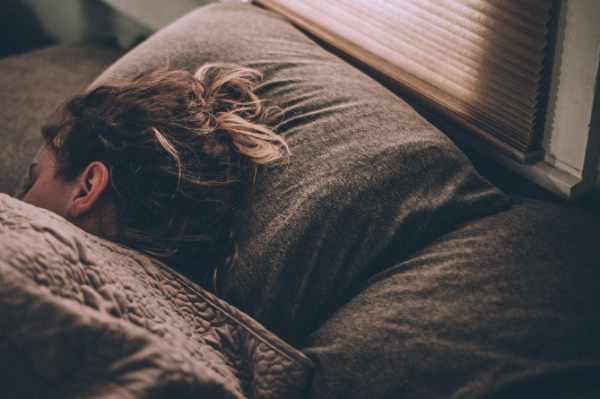Sleeping is probably the most important part of our everyday life necessities just after drinking water. Sleep promotes healthy function of the mind and body, while also helping your whole system to recover and regenerate. To make this happen, you need to optimize your bedroom!

4 Ways to Optimize Your Bedroom
However, with hectic schedules, people often tend to neglect to sleep. But, even for those who want to have a good night’s sleep, it doesn’t come that easy. Technology, clutter, and old mattresses can heavily impact your ability to fall asleep.
If you want to improve your sleep take a look at some of the tips we listed below.
1. Upgrade Your Mattress
To optimize your bedroom, it all begins with your bed. When we think of quality sleep, we first think of soft and comfortable mattresses that transport us to relaxation heaven each time we lie down. But most of the time, we don’t pay attention to the beds and mattresses we currently have.
Although mattresses should be changed every 5 to 8 years, sometimes people tend to keep hold of their mattresses for a longer time. On top of that, choosing a mattress can be extremely difficult. There are many things you need to take into account to select the best one according to your needs and preferences.
Make sure you browse online catalogs and make a trip down to a local store so that you can get a better idea of what kind of value the mattress will bring to your life.
Exploring a great selection of beds can be the first step towards transforming your sleep experience. With advancements in sleep technology and design, today’s market offers beds that cater to a wide range of sleep habits and preferences. Whether you’re looking for something firm to support your back or a softer surface that cradles your body, there’s likely a bed out there that meets your specific needs. Remember, the bed you choose is the foundation of countless nights of sleep, so taking the time to find the right match is essential.
Nowadays, the best mattress manufacturers offer custom and handcrafted mattresses designed for every type of sleeper. For instance, if you’re looking for a natural mattress, you can search for the best heritage mattress collection near you to find the right mattress type that matches your sleeping position and comfort levels.
2. Eliminate the Noise
Many noises can disturb your sleep including those from loud neighbors and television sets. Even if you don’t remember when you woke up, noises can affect deep sleep cycles. Earplugs can be lifesavers as they cancel out all outside noise and allow you to enjoy your sleep peacefully. However, make sure that you purchase custom-made earplugs as cheap ones might damage your hearing.
You can also use your devices to play some relaxing music or white noise. White noise has been extremely popular recently as it can help you cancel out noise that it’s not in your control. On top of that, if you are suffering from tinnitus, you may already know how important white noise is when you are trying to sleep.
White noise and earplugs could be also helpful in dealing with your partner’s snoring. However, prolonged snoring and difficulty breathing at night might be strong indicators of sleep apnea.

3. Keep Your Bedroom Spotless
Unorganized spaces can make it difficult to relax and prevent you from drifting off. A few minutes per day spent decluttering and making sure everything is organized can make a huge impact on your sleep quality.
Before you go to bed, try to organize bills, kids’ schoolwork, and work papers and keep them far away from your bedroom. Furthermore, keep clothes out of sight and take the trash out. After all, you want a relaxing bedroom space to sleep well.
You can store your odds and ends in a nightstand drawer or a container, which will keep your space tidy and your essentials easily accessible. A dresser, shelf, or shelf with cubbies is a good option for larger items.
All in all, your bedroom should be decorated in a minimalistic style with soft and warm lights to help you relax during the nighttime. You should also shut the blinds as the darkness will help your body create more melatonin, which helps you enter deep sleep faster.
4. Eliminate Harmful Light
Speaking of light, we are all accustomed to light shining out of our smartphones and notebooks before we go to sleep. But did you know that light might impact our ability to fall asleep at night? The blue light that’s emitted from our electronic devices is not just harmful to our sleep but also to our eyes as it can cause eye strain.
Experts recommend that we stay away from electronics for at least 30 minutes before going to bed as technology stimulates our brain and the way we process information, which makes it harder to fall asleep.
Final Thoughts
Sleep is extremely beneficial to the body and not getting enough might seriously impact your overall health. There are many ways you can optimize your whole bedroom to help you get the best sleeping experience. Follow our tips and you will surely be sleeping like a log with the added comfiness of a new mattress and the lack of harmful blue light.



